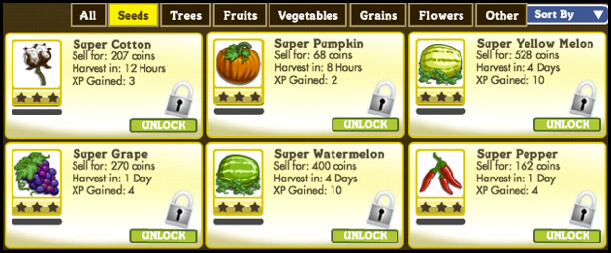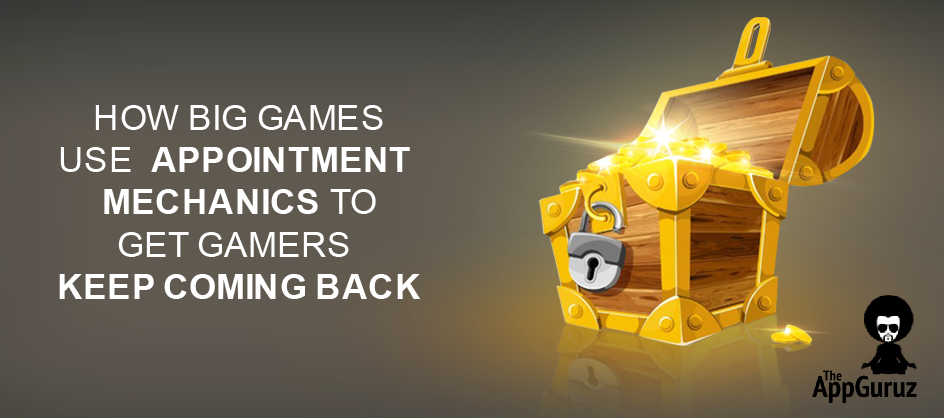Objective
The main objective of this post is to understand Appointment Mechanics and how it can be used effectively to make a game sticky.
Step 1 Introduction to Appointment Mechanics
Most big numbers can be turned into business opportunities.
Consider, for example, the fact that an estimated that 70-80 million dogs and 74-96 million cats are owned in the United States. Put together, the population of these two pets is about half the human population of Canada.
Apart from vets, pet-shop owners, pet trainers, pet food companies and pharma companies, which other business you think benefits from these numbers?
Pet Feeding devices. From the times the earliest of such devices were patented in the forties, Pet Feeding devices have come a long way - estimate vary, but the figure is close to $1.5 billion of sales annually.
But what is a Pet Feeding device doing in a gaming blog?

A sophisticated Pet Feeding device can perform an important function - it keeps time. It can be set at certain times of the day so the pet is fed when the owner is not around.
Step 2 Set an Appointment with the player
Successful games are known to have used what is called the Appointment Mechanics to schedule when the gamer should come back to the game.
Farmville is, of course, one of the best known games to use the Appointment Mechanics ("Hey you! Your tomatoes need to be watered in the next 2 hours. If you aren’t back, your crop will die!") in its core gameplay. And it is fantastic.

There’s, however, a famous device that may not really fall under the game category, but uses Appointment Mechanics brilliantly. In fact, Appointment Mechanics is all there is to that game.
It’s Tamagotchi, in case you haven’t guessed already.
Step 3 Example: Tamagotchi
Technically, it is an Electronic Pet. The gamer (who is the owner of the ‘pet’) sees it go through the entire life-cycle, from hatching to childhood to adulthood to a possible death.
All through, the gamer gets the virtual experience of having a pet. A Tamagotchi must be taken care of, fed, toilet-trained, administered medicines if it falls sick, played with to keep it happy and so on.
It’s surroundings must be kept clean (a tamagotchi may leave droppings unless the owner toilet-trains it), or it can fall sick and possibly die.
And what do you think is the central theme here?
No prizes if you guessed Appointment Mechanics (also called Appointment Dynamic). It means a gamer is required to return after a certain period of time. This action of returning will earn him some rewards.

The game sets a sort of schedule for the gamer: when can you feed the pet (don’t overfeed, underfeed or feed it at random times or it can fall sick and possibly die), when the pet goes to sleep and when it will be up. The gamer must follow the schedule, or he runs the risk of potentially losing the pet.
The two ways in which Appointment Mechanics work:
The Appointment Mechanics in two different patterns.
- It may force the gamer to come back to the game within or after a certain time
- It may allow the gamer to set a time-frame within which to return to the game.
One way, it can force the gamer to come back to the game within or after a certain time duration. In this case, the game leaves no choice to the gamer but to return on time.
Or else, there would be either a punishment or loss of reward and this idea is not restricted to the gaming world alone. Groupon nudges its visitors to its sites using this technique.
Amazon announces Deal-of-the-Day a few days in advance and lures customer on the said dates.

Even the notification that they send out in case you didn’t make it are worded intelligently to make you feel left out ("Oops! You missed it!").
There is another way too. The game may offer some choice to the gamer as regards the appointment.
Consider a housewife, someone who’s a serious Farmville gamer too. She wakes up at 6 am and drops kids to school, returns from the gym and is free by 8 am.
She knows she has upto 4pm, so she can choose planting African Gourmet Mushroom (grow time: 6 hrs) or Green Onion (grow time: 7 hrs 30 min) or something with similar grow time.
Once she chooses a crop, she has made an appointment with herself. In all likelihood, she may not need any external notification to remind her of the 4 pm 'Appointment'.
She will start playing at 4 pm, but it will be because she committed to herself and almost literally pushed “harvest crop at 4” into her to-do list of the day. That is the power of Appointment Mechanics.
Step 4 What happens when the Appointment is not honored?
The gamer has chosen a certain time at which to return to the game. Alternatively, she has been given a time by which she must return to the game.
But what happens if she doesn’t honor the appointment?
The crop will rot, Tamagotchi demanded to be fed at times or to be taken to the toilet at times, but in case of Farmville the housewife herself promised her own self.
Cityville appears urban when you look at the rural, farm-like setting of Farmville, but the underlying theme was almost identical.
Clash Royale gives out chests as rewards. You can open the chest in 3, 4, 8 or 24 hours depending on the chest type.

However, if you don’t open the chest on time - you are not punished like Farmville. Instead, you miss out an opportunity to open another chest (you can have only one chest open at any point in time).
So people try to minimize their losses (Loss aversion comes into play) by coming back to the game on time.
The game Cityville has a slightly different mode which helps you decide which building and property should be developed, considering a lot of factors.

Technically, all these tactics involve the same principle: Appointment Mechanics. Have the gamer back to the game at a certain time. That’s what makes the game sticky.
What do you think of the Appointment Mechanics? What have been your experiences? Let me know in your comments below.

An entrepreneur who has founded 2 flourishing software firms in 7 years, Tejas is keen to understand everything about gaming - from the business dynamics to awesome designs to gamer psychology. As the founder-CEO of a company that has released some very successful games, he knows a thing or two about gaming. He shares his knowledge through blogs and talks that he gets invited to.
